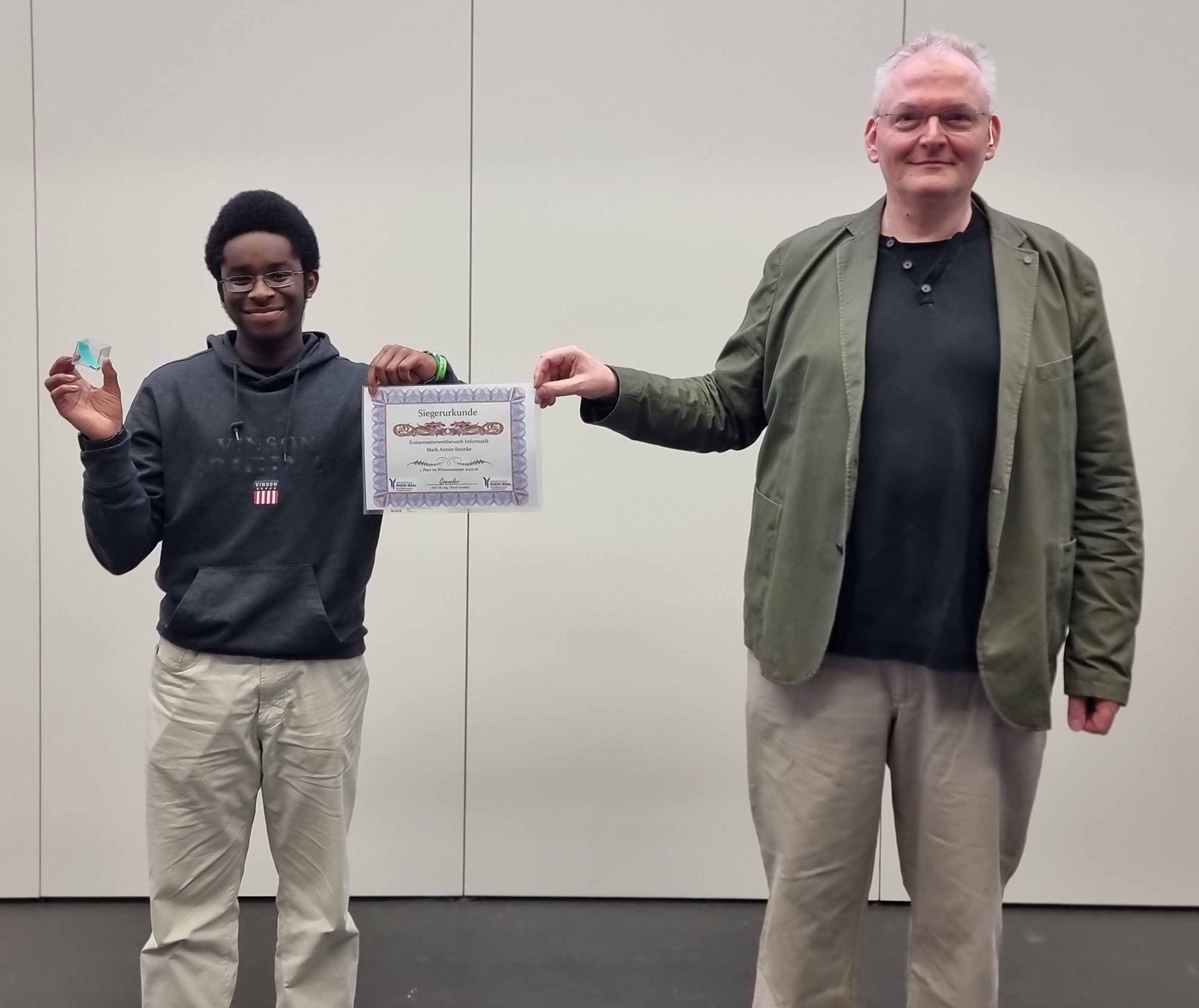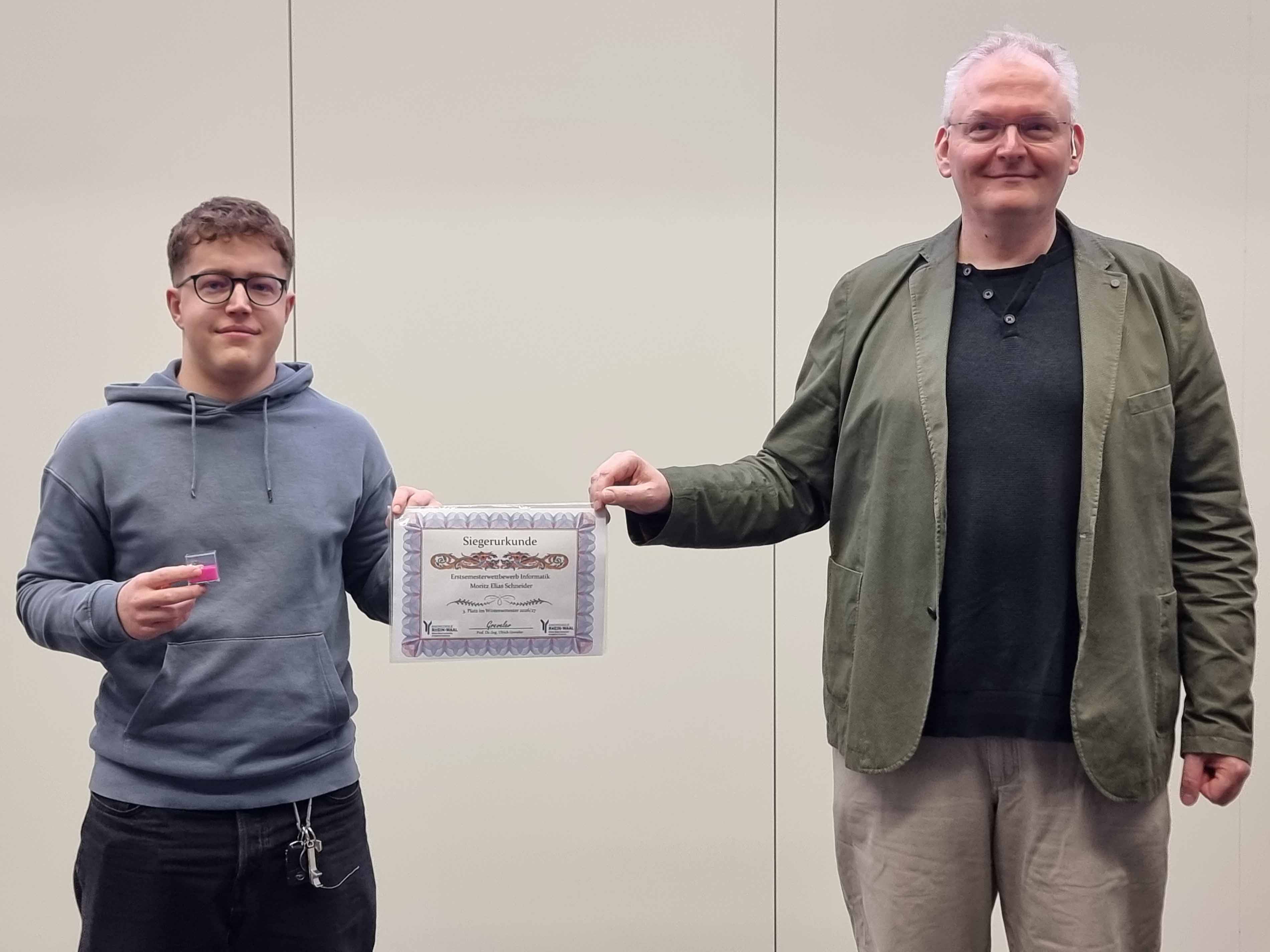Data Detectives at Work
First-Year Students Impress with Sharp Analytical Skills
At this year’s first-year competition hosted by the Faculty of Communication and Environment, new Informatics students demonstrated just how confidently they can handle complex data analysis. Instead of cracking a code as in the previous year, participants were challenged to unravel a fictional police case using an extensive open-data set from the city of Moers.
The task: Match a detailed but undated witness statement to a specific moment in time. To do so, students sifted through thousands of lines of pedestrian sensor readings and weather records. The challenge called for careful filtering, clever cross-referencing and a keen eye for patterns. “AI can support the process, but it easily misses small yet crucial details. The real progress comes from people analysing the data with care,” noted competition organiser Professor Dr-Ing Ulrich Greveler.
Remarkably, all three correct solutions were submitted just 37 minutes after the competition began — an impressive achievement given the size and complexity of the dataset.
And the winners are:
- Mark Annin-Steinke, dual student in Public Administration IT with the City of Herne
- Björn Bach, dual student at the LZPD NRW
- Moritz-Elias Schneider, also a dual student at the LZPD NRW
Professor Greveler emphasised that this year’s challenge clearly highlighted how modern public administration and police services benefit from data-savvy young professionals: “Our students combine solid theoretical knowledge with critical thinking and a considered use of AI tools. That combination will be essential for the digital infrastructures of the future — in public agencies, local government and especially in an increasingly data-driven police force.”
The Informatics programmes at Rhine-Waal University of Applied Sciences bring together technical expertise and social relevance. The dual study routes, in particular, enable students to apply what they learn early on in public institutions, companies or local authorities — a benefit to both students and employers alike.



